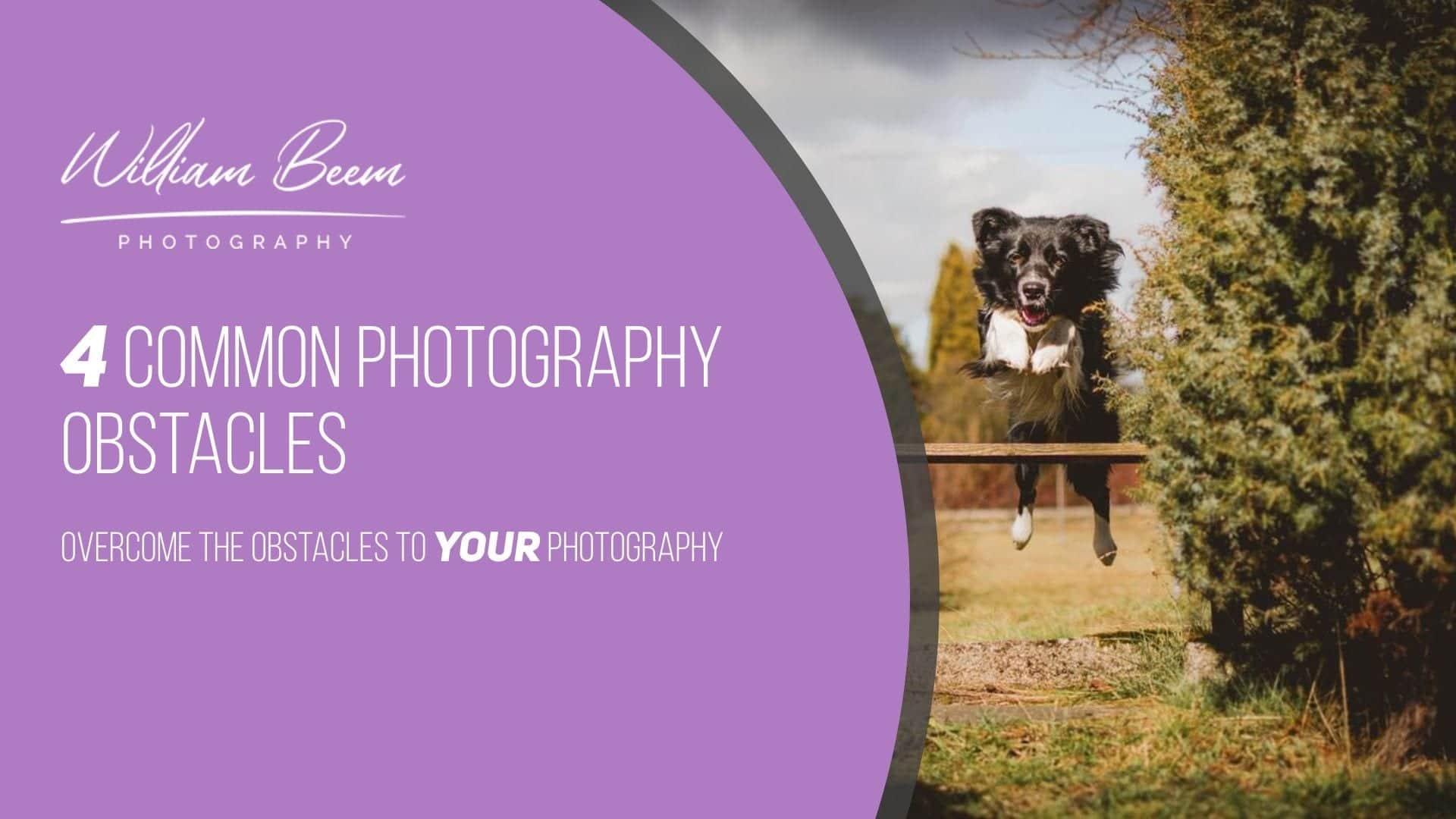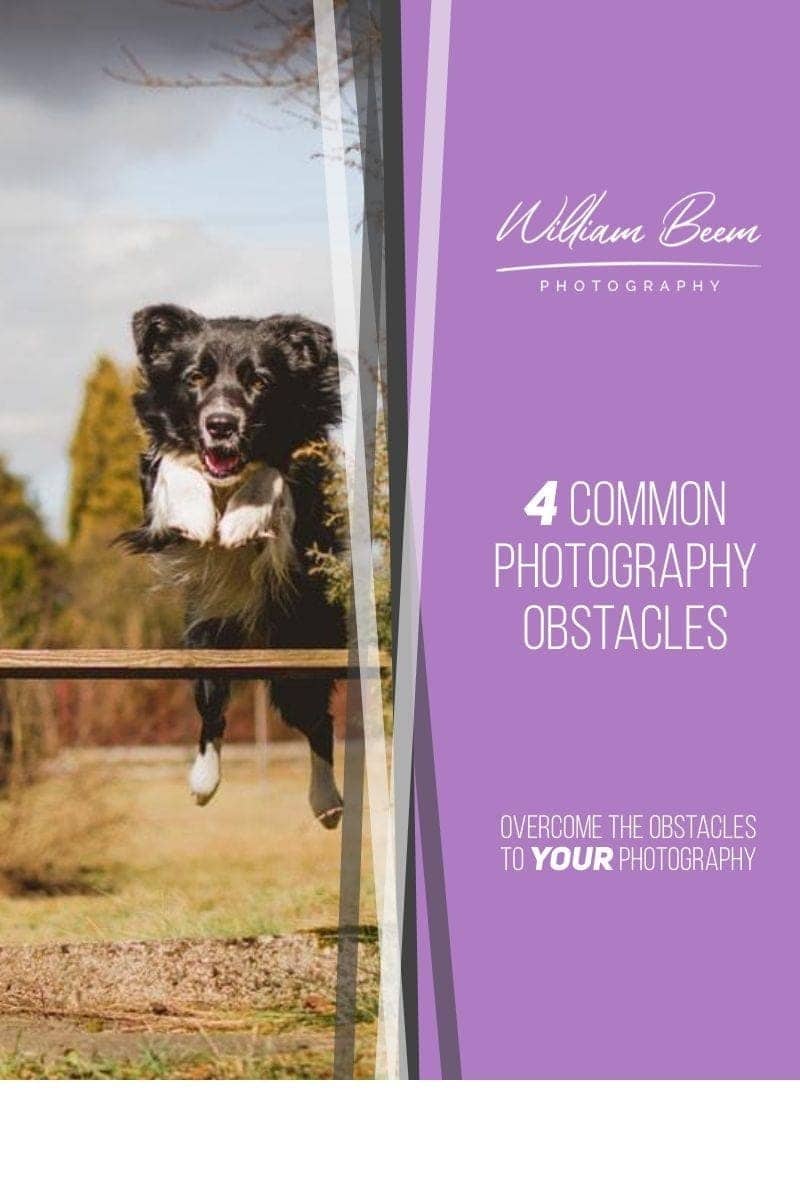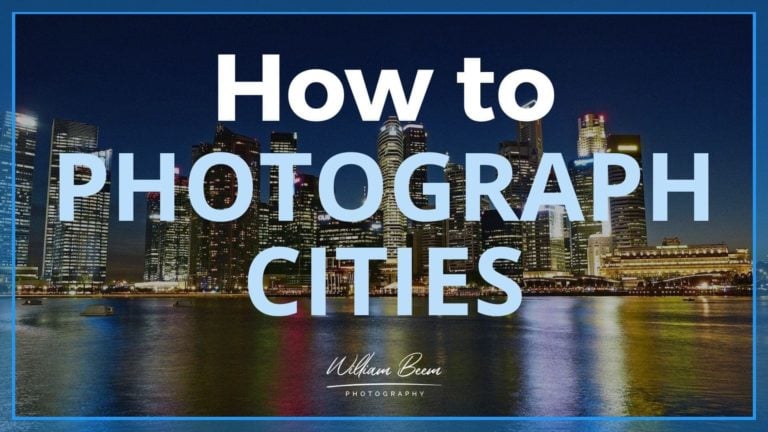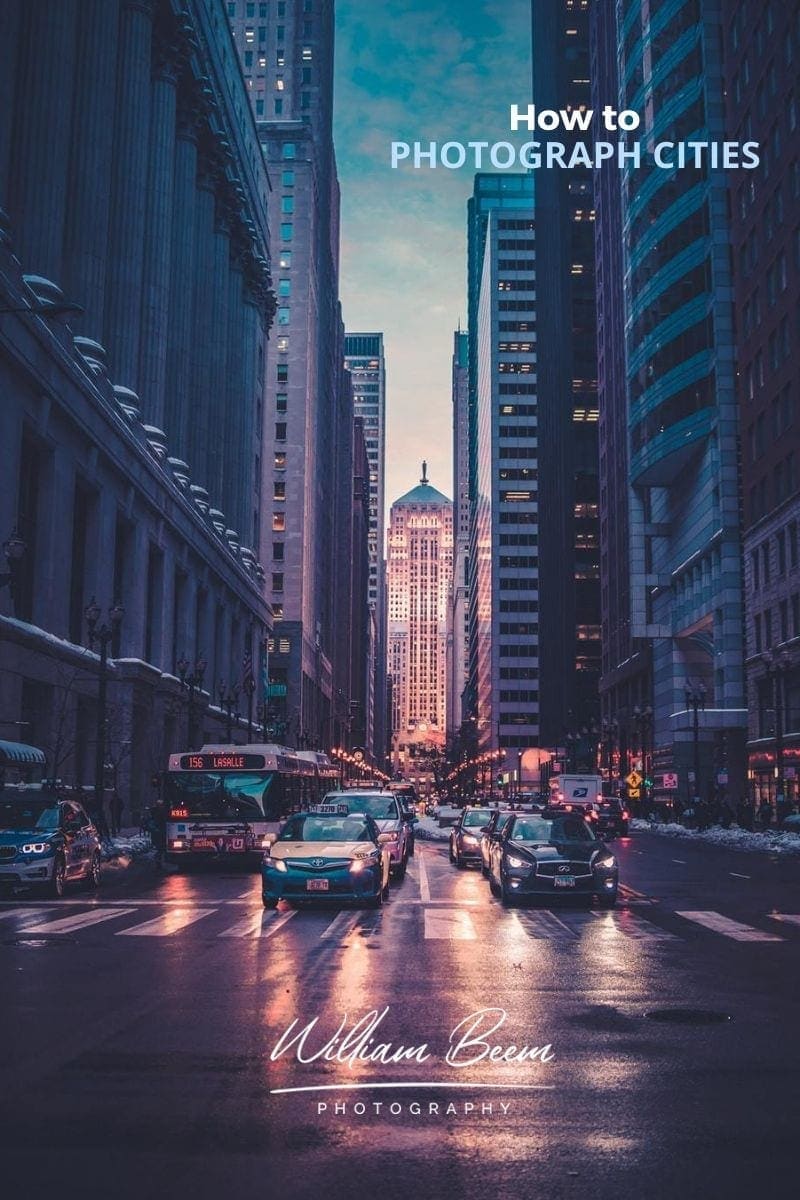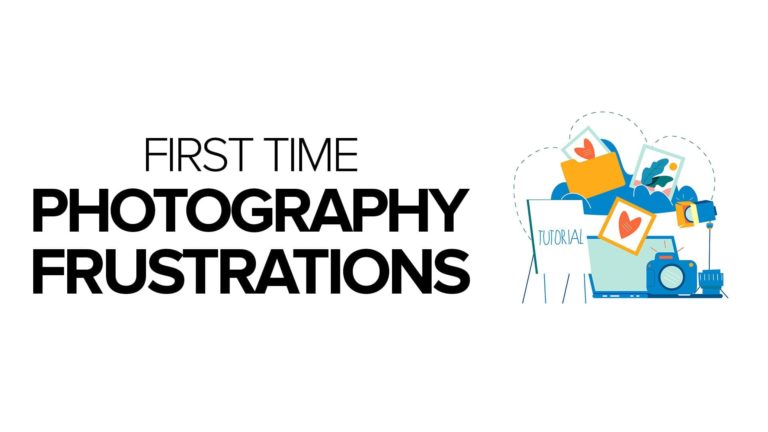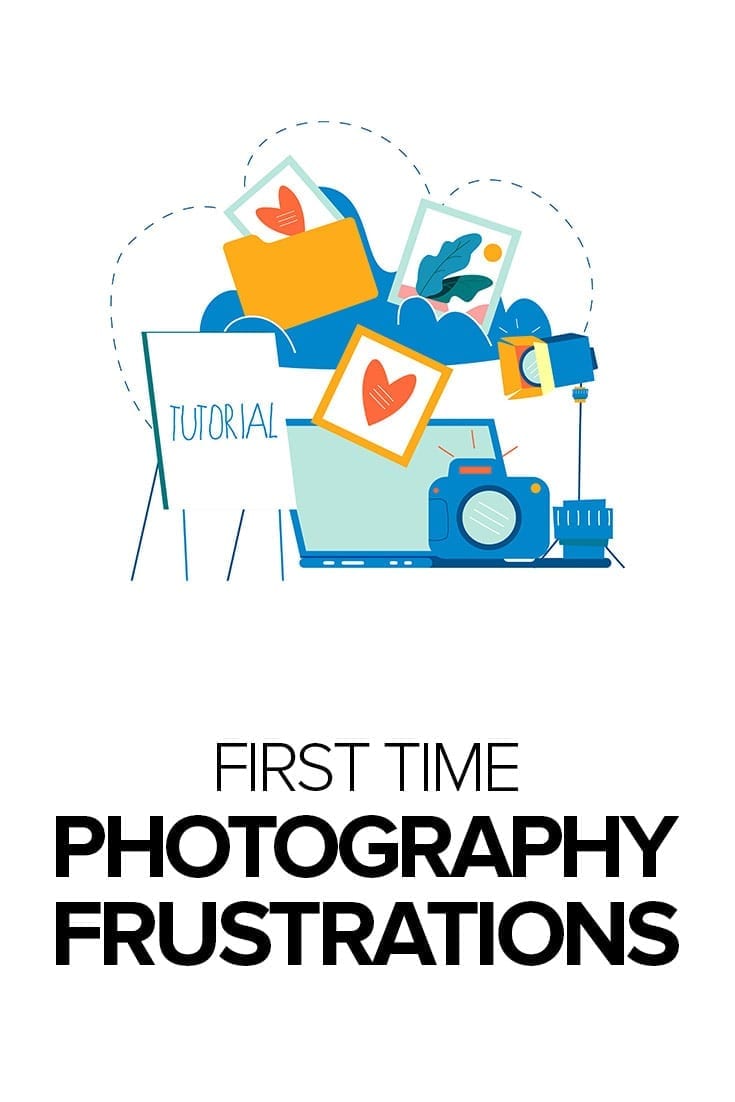Affiliate Disclosure: We earn a commission if you purchase through one of our links at no additional cost to you.
What’s keeping you from taking the photos you want to take? We gave it some thought and came up with a list of four common photography obstacles for this episode of I Like Your Picture.
4 Common Photography Obstacles
We want to help you understand three things about common photography obstacles.
- You should understand how to recognize common photography obstacles
- Learn how to overcome your own photography obstacles
- Prevent future photography obstacles from stopping you in your tracks
With that in mind, let’s get to the main points.
#1: Lack of Knowledge About Photography Issues
Everyone encounters this obstacle at some point or another. We aren’t born knowing how a camera works. It takes time to understand lighting and how it affects your scene and subject matter.
Photographers experience technical and creative challenges. Which is harder to overcome – handling the technical details of creating a photo or understanding the creative vision necessary to develop your scene?
Photography forums still exist, but we’re no longer fans of them because photography forums tend to be mean places these days (there are exceptions). It’s hard to decipher good advice from bad advice these days.
Check out the Resources Mentioned below for my recommendations for photography education.
Experience is the best teacher. As you take more photos, spend time to analyze your photos and determine where you need to improve. Spend some time working on those issues, but work on them one at a time. It works for technical or creative issues to improve.
#2: Lack of Confidence
Are you confident in your ability to handle all the things you need to do? You’ve mastered your camera and its settings. Maybe you have the same mastery of Lightroom, Photoshop and other tools.
Perhaps you’re a master of lighting, set design or finding interesting compositions for your travel & landscape photography.
Are you intimidated by models or portrait subjects? Knowing that you have to direct them, keep them calm and suggest posing for other people gives a lot of people some pause.
OK, maybe you’re not a master of everything, or anything. That doesn’t mean you can’t develop those skills and increase your confidence as you get more experience.
Are you comparing yourself to someone with more experience than you do? Some people have access to locations and resources that you lack. So don’t say that you’ll never be able to do what another photographer does. You’ll find your own way. They didn’t start off with every advantage. Photographers work to perfect their craft, and that’s what you need to do, also. As you build experience, you’ll build confidence.
#3: Need Approval from Others
You may think that this photography obstacle to need approval from others is about wanting others to like your photos. We discussed it and our advice is to avoid comparing yourself to others. Getting validation from others may lead to heartache.
It’s easy to get emotionally connected to your own photos and want to seek validation on a photography forum or group. Well, those folks don’t have the same emotional connection as you do. They may like what you share, or they may be brutal and ruin your day. Remember, input and approval are different things.
If you’re going to ask for feedback from strangers on the Internet, be specific about what you need to know. Instead of proudly showing your photo and asking what people think, go a step further and ask for feedback on your compostion, your lighting or perhaps your post processing technique. Find areas where you can improve and work to fix them. Sometimes you get feedback that’s more helpful if it isn’t a free-for-all review.
Instead, the obstacle is when you truly need permission to do your photography. Here are a few examples:
- You need access to a location or venue in order to take photographs (e.g., concert, sports or event photography)
- Working with others requires their permission (e.g., models, stylists, makeup artists, set designers)
- A large purchase may require approval or permission from someone else (e.g., getting a loan or credit card, discussing with your spouse)
To get approval, think through why you need what you’re requesting. People, even spouses, respond better to a rational issue than an emotional one. Concert promoters want to know how you’re going to use the photos. If it’s not to their benefit, you may not get access. Working with other collaborators is a good thing, but they also need to know why they should work with you.
#4: Analysis Paralysis
Of all the common photography obstacles, overthinking wastes more time than anything else I know. A lot of photographers are actually more technically minded than creative.
That’s OK. I wasn’t born as a creative person. I had to develop what I know over time.
Since my brain likes technology, process and detail, that’s where I spend the bulk of my time. In turn, that leads me to overthink things where I should have a strength.
Do I want Nikon, Canon or Sony cameras?
Should I buy Elinchrom, Godox or Profit lighting gear?
There is a plethora of simple decisions to make at every stage of photography, and there are more options for each of those decisions. What happens if I make the wrong choice?
That’s the problem, really. Fear of making the wrong choice.
Here’s the truth about these decisions. Many of them just don’t matter. They may come down to convenience or preference.
For example, all cameras work the same way. You have three aspects to consider when making an exposure:
- Aperture
- ISO
- Shutter Speed
Everything else is optional! There are some “nice to have” features on a lot of cameras. I’m not suggesting you ignore those features, but keep them in their place. When you take a photo, you make an exposure by adjusting aperture, ISO and shutter speed. That means you can take a perfectly lovely photo with nearly any camera.
Yes, there are decisions about lens choices, which aperture is best for your photo, and having WiFi connectivity to your iPhone. Still doesn’t change the fact that you’re dealing with three variable to make an exposure.
Limit your decisions to essential elements first. Then you can consider if the extra features are worth your concern.
Once you stop analysis and make a decision, then you can solve the first three common photography problems because you know what you want or need, and why it’s important.
Time Stamps
1:13 – Lightroom Develop Workflow Checklist <–click here to get it!
3:00 – Lack of Knowledge
9:02 – Lack of Confidence
12:19 – Need Approval from Others
16:30 – Analysis Paralysis
Resources Mentioned
I mentioned some of the places where I’ve learned photography and am happy to recommend. Note that these are affiliate links and I’ll receive a small commission if you purchase based upon my recommendation. However, both have some options for free training. Feel free to check out their quality before you buy. I appreciate it if you use my links below.

